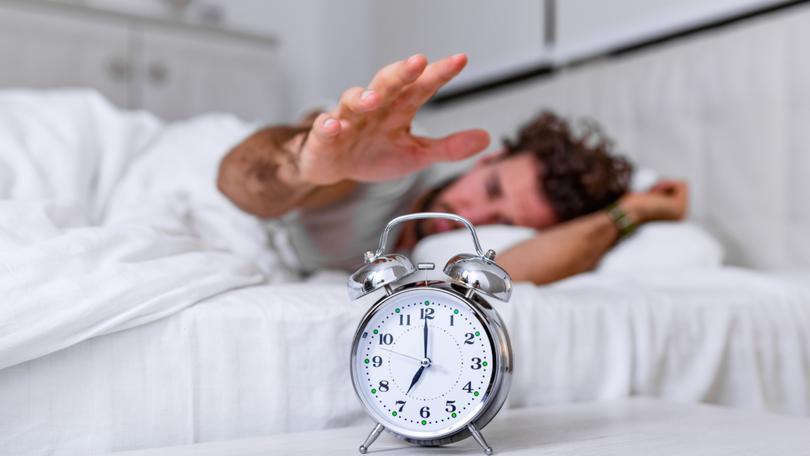THE WASHINGTON POST: When waking up is hard to do. Here’s how to rise and shine in the morning
THE WASHINGTON POST: Some people assume they are doing something wrong when they have trouble getting up in the morning. They (and their bosses) may even see it as a personal failure

A lot of people assume they are doing something wrong when they have trouble getting up in the morning. They (and their bosses) may even view the problem as a failure of will and discipline. But trouble rising is not a character flaw or a sign of limited insight and ingenuity; it is a legitimate health issue.
Here are a few suggestions based on my experience as a sleep psychologist.
Identify the root causes
Sign up to The Nightly's newsletters.
Get the first look at the digital newspaper, curated daily stories and breaking headlines delivered to your inbox.
By continuing you agree to our Terms and Privacy Policy.Common but not exclusive reasons include:
1 A delayed circadian rhythm. It is hard to wake up and get going in the middle of one’s night, even if that night continues after others have awakened.
2 Insufficiently many hours of sleep, whether because of insomnia, needing more sleep than most people, late responsibilities, illness, challenges with time management, or other factors
3 Impairment in sleep quality, often because of a disorder such as sleep apnea, medical conditions such as pain or reflux, anxiety, medications, alcohol use, a patchwork sleep schedule, environmental disturbances, or other factors
4 The lingering effects of sleeping pills
5 Depression

Interventions depend on the causes
Speak with your doctor about a possible referral to a sleep clinic for assessment. They might recommend blood testing, an overnight sleep study, or consultation with another practitioner.
These steps may sound complicated, but trained professionals will almost always be familiar with your problem and select from a range of evidence-based interventions to address it. Be prepared for waits and some trial and error, but if the treatment works, feeling rested and functional in the mornings will be the payoff.
There are online programs and apps for insomnia you can try.
Minimize sleep inertia
Our neural circuitry does not come online all at once when we awaken. It’s more like a bank of interconnected computers, some booting up more slowly than others as reduced blood flow to certain areas of the brain gathers speed. This uneven process is evident when we are startled awake by something like a doorbell or alarm clock: We stumble, as if part awake and part still asleep.
“Sleep inertia” is the term for this grogginess, cognitive impairment and pull toward sleep upon waking. It usually resolves within 30 minutes.
Sleep inertia can be helpful for getting back to sleep in the middle of the night, but many people have too much sleep inertia in the morning. I always strive first to help patients obtain ample sleep of good quality at a time that works well for their bodies and their schedules. But from there (or as needed along the way) it’s a matter of taming sleep inertia itself:
1 Try not to startle awake. Products like sunrise alarms, while intended to mimic sunrise for the benefit of our primitive biological clocks, have another advantage: They induce progressive wakefulness, giving our minds the opportunity to come to alertness gradually.
2 If practical, consider waking up without an alarm. Our sleep unfolds in roughly 90-minute cycles. It is natural to awaken at the conclusion of each cycle. The ideal is to awaken spontaneously in the morning at the end of a cycle. (Even better is to have obtained a full-night’s complement of such cycles by that point.) Not only do we subdue sleep inertia and spare ourselves unpleasant disruptions, but finishing a sleep cycle supplies needed sleep.
3 Check out wearables and phone apps. For those who are so groggy that they automatically slip into a new sleep cycle, these products time their summons to coincide with a lighter stage of sleep, making it easier to rise.
4 Try not to use the snooze alarm repeatedly. It is nice to press the snooze button and not have to get up right away. I don’t discourage anyone from using it once or twice. But repeated use may ironically make waking harder. The research findings on this topic are mixed. Snooze alarms have been found both to increase and decrease sleep inertia. They may ease waking by delivering us into a lighter stage of sleep. But if they startle us from sleep and deprive us of more restorative sleep, they may contribute to sleep inertia: Too little sleep leaves us with a glut of the sleep-promoting chemical adenosine.
If nothing else works, coerce waking
Sometimes we have to get up at a certain time even if we are overwhelmingly groggy:
1 Try a gradual bedside alarm in case it does the trick. But also set two alarms across the room, staggered to go off at five-minute intervals.
2 Don’t deliberate about whether you are ready to wake up. Replace negotiation with automaticity. Plant your feet on the floor on autopilot. Walk directly to the alarms, then the bathroom, then the kitchen. Don’t lie down again.
3 If possible, sit outside to consume your usual morning caffeine (unless your sleep treater has advised you to postpone first light exposure). Caffeine counteracts adenosine. Light promotes alertness and tunes biological rhythm.
4 Or go for a walk to get your morning light. Exercise assists good sleep, and outdoor exercise improves mental acuity.
5 Arrange something pleasant to look forward to in the morning.
6 Enlist others’ help in waking you as needed.
Tips are not a substitute for individualised health care
(c) 2025, The Washington Post
Originally published as 10 tips from experts to improve our mental well-being
